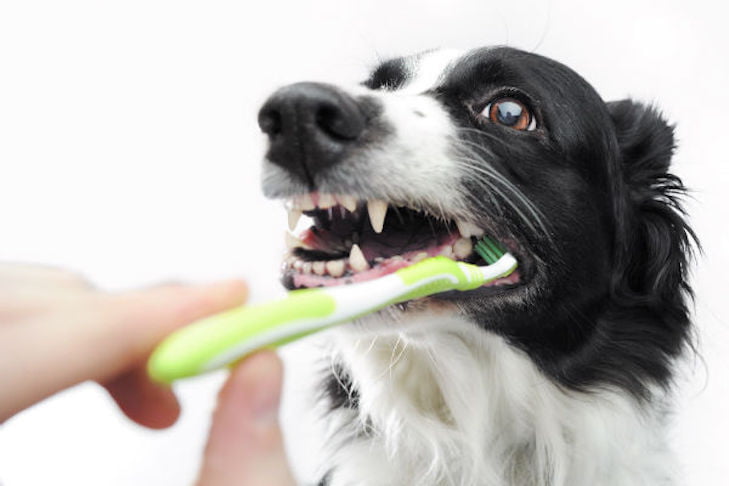For their general health and wellbeing, regular dental care for dogs is essential. It's possible for many pet owners to undervalue the importance of dental hygiene for their animal friends. But just like people, dogs may have dental problems that, if left untreated, can develop into major health complications. In this article, we'll look at the warning signals that your dog could require dental work as well as the significance of doing preventative dental care steps.

Bad Breath (Halitosis):
Persistent foul breath is one of the most prominent indicators that your dog could need dental treatment. Although some degree of breath odor is natural for dogs, an overly bad scent may be an indication of oral bacteria. Gum disease and tooth decay are two dental issues that might result from this bacterial accumulation.
Changes in Eating Habits:
A dental problem may be the cause of abrupt changes in your dog's feeding habits, such as a preference for one side of the mouth while chewing or a reluctance to consume hard kibble. Dental issues may cause pain or discomfort when eating, and it's important to take care of these issues as soon as possible to avoid worsening the situation.
Visible Signs of Dental Issues:
Regularly check your dog's mouth for obvious indications of dental issues. Gums that are swollen or red, bleeding, stained teeth, and the appearance of plaque or tartar may all be signs of oral health problems. See your veterinarian for a thorough dental check if you see any anomalies.
Excessive Drooling:
While some drooling is typical for certain breeds, excessive drooling may indicate pain or discomfort in the mouth. Dogs who have dental problems, including gum disease or tooth infections, may drool a lot. It is recommended to get your dog proper dental treatment if this habit continues.
Pawing at the Mouth or Face:
Pawing at their lips or face is one habit that dogs that are in discomfort from their teeth may display. This could be a sign of pain or an effort to ease discomfort. Early dental issue detection may be achieved by keeping an eye on your dog's behavior and seeing the doctor if you encounter any of these symptoms.
Loose or Missing Teeth:
Missing or loose teeth may be obvious signs of oral health issues. Dogs may lose teeth due to dental trauma, periodontal disease, or other oral health problems. It is essential to get routine dental examinations in order to identify and treat these issues before they worsen.
Conclusion:
For their general health, it is crucial to maintain good dental care for dogs. You may aid in preventing more significant health concerns by addressing early warning signals of oral disorders and obtaining expert treatment. A balanced food, frequent dental examinations, and good oral hygiene habits at home all contribute to your pet's long and happy life. Make your dog's oral health a top priority to ensure they live a long and happy life with you.
